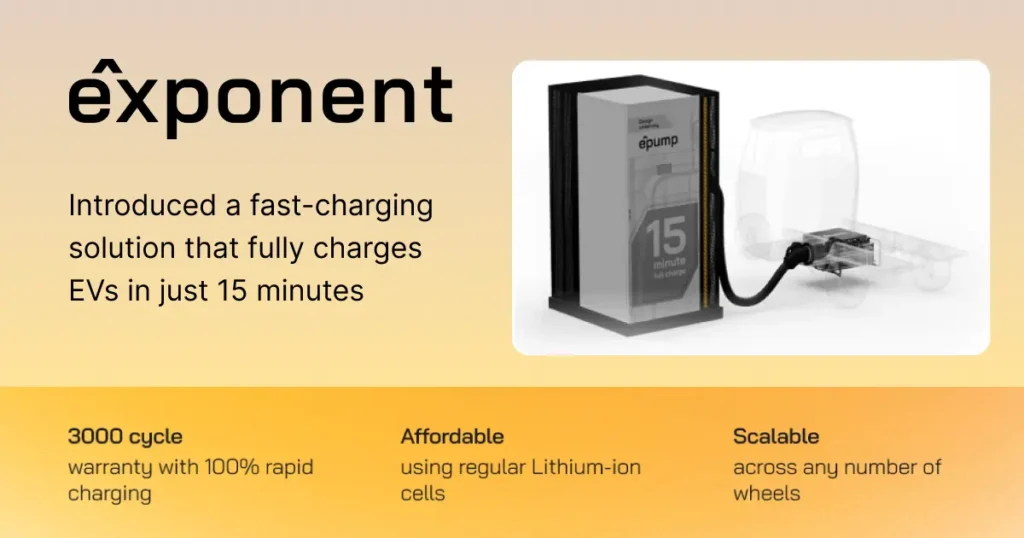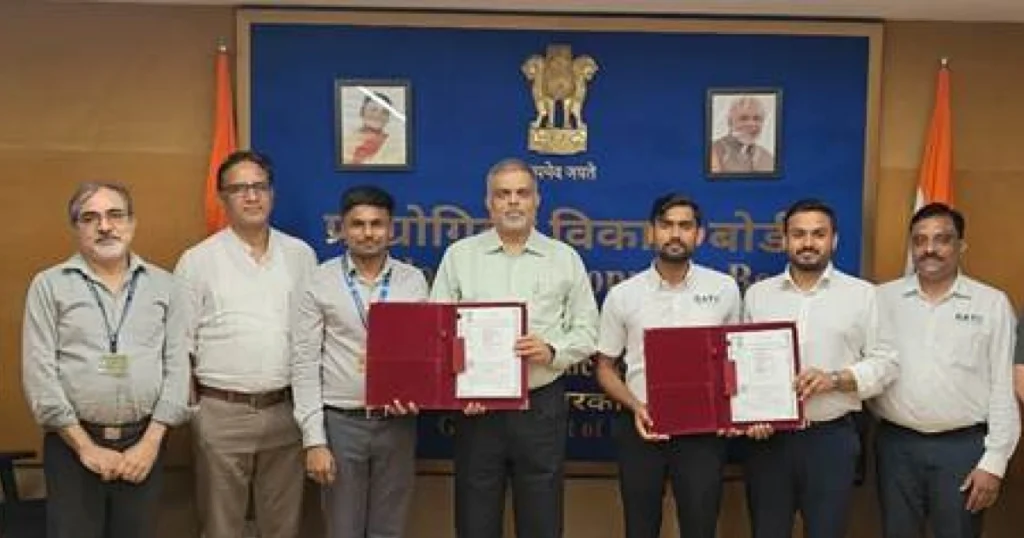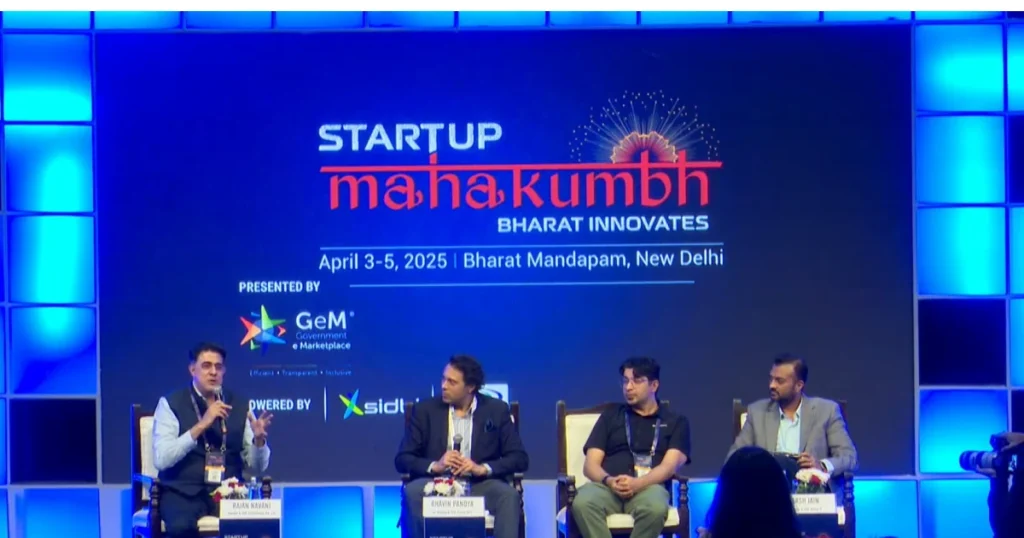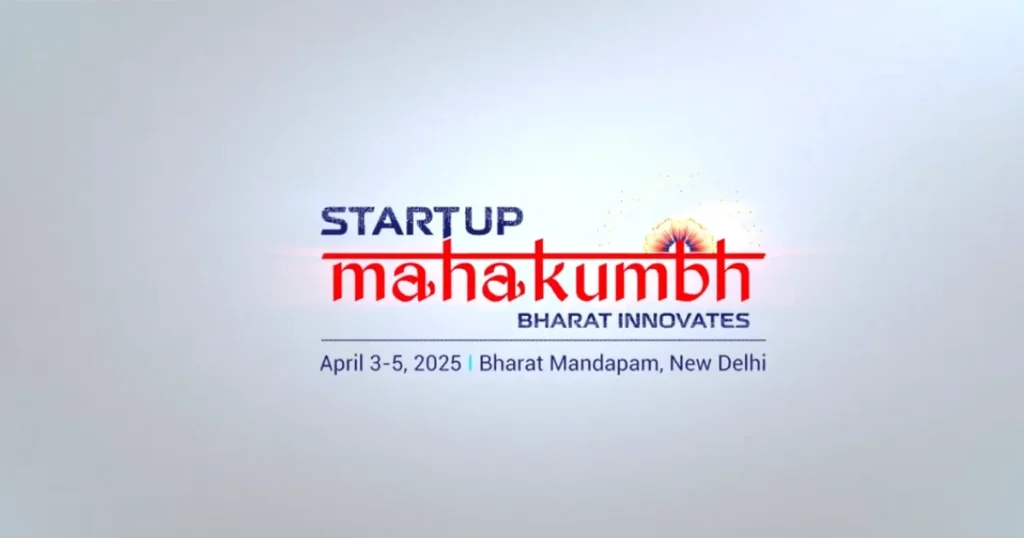In a major advancement for the electric vehicle (EV) sector, Exponent Energy has introduced a fast-charging solution that promises to fully charge EV batteries in just 15 minutes.
This development addresses one of the primary hurdles to EV adoption, long charging times, which has often deterred potential users and limited the broader acceptance of electric vehicles.
Founded in 2020 by Arun Vinayak and Sanjay Byalal Jagannath, Exponent Energy has quickly established itself as a leader in the field of rapid charging technology.
The company’s new system combines its proprietary e^packs (battery packs) and e^pumps (charging stations) to achieve unprecedented charging speeds.
By utilizing standard lithium-ion battery cells, Exponent Energy has managed to keep the technology cost-effective and scalable.
The breakthrough in charging time is expected to significantly enhance the convenience for EV users, making electric vehicles a more practical choice for everyday use.
The integration of advanced software with robust hardware ensures that the charging process is both safe and efficient.
Additionally, the company’s commitment to providing a comprehensive 3000 cycle warranty underscores its confidence in the durability and reliability of its systems.
This innovation is not only set to improve user experience but also aims to accelerate the transition to sustainable transportation.
By reducing the time required to charge EVs, Exponent Energy’s technology has the potential to drive wider adoption across various vehicle categories, from personal cars to commercial fleets.
The impact of this advancement could extend beyond user convenience.
With faster charging times, more individuals and businesses may be encouraged to switch from traditional fossil fuel powered vehicles to electric alternatives, contributing to a reduction in overall environmental impact.
Exponent Energy’s new fast charging solution represents a major step forward in the evolution of EV infrastructure.
As the company continues to push the boundaries of technology and innovation, its efforts are poised to play a crucial role in shaping the future of electric mobility.



















